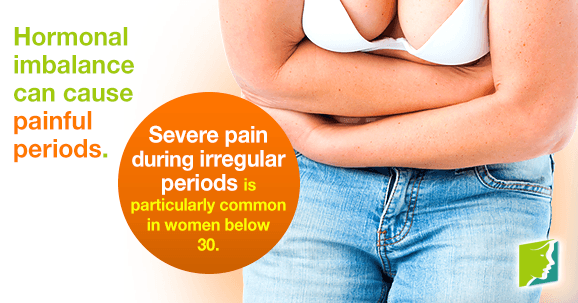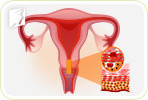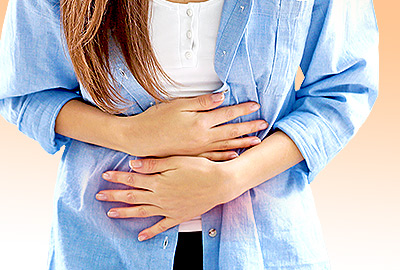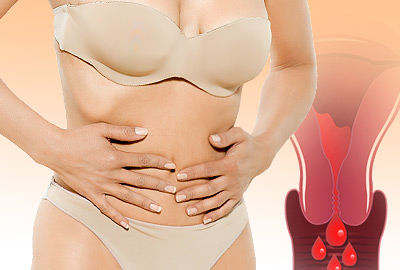During menopause, periods become more irregular and unpredictable. In some cases, this can also be accompanied by increased cramping or menstrual pain. Many women experience cramps, lower back pain, or soreness at some point during menstruation. However, changing hormonal balances within the body can amplify this pain during menopause.
Hormonal Causes of Severe Pain during Irregular Periods
The pain associated with irregular periods is usually caused by fluctuations in hormone levels, particularly estrogen and progesterone. During menopause, estrogen and progesterone as well as some other hormones, are created in the body in less stable, consistent amounts. These fluctuations can cause a number of other menopausal symptoms as well, such as hot flashes, night sweats, and vaginal dryness.
Other Causes for Severe Pain during Irregular Periods
There are a number of other reasons why you may be experiencing severe pain during your periods while approaching the menopausal transition. Many of these are related to uterine problems, and if you suspect that you may have any of the following, please consult a medical professional.
- Endometriosis
- Fibroids
- Pelvic inflammatory disease
- Sexually transmitted infections
Additionally, other external causes, such as a "copper T" or other non-hormonal intrauterine devices (IUD), or severe stress, and anxiety may also intensify the pain felt during menstruation.
Severe Pain during Irregular Periods: What Can I Do?
Regulating these hormone levels is an important part of treatment for pain and cramping during menstruation. There are a number of simple things that you can to do help regulate your body's hormones and prevent pain from occurring in the first place, such as:
Regular exercise. This can help stabilize your body.
Change your diet. Try eating more complex carbohydrates such as fruits, vegetables, and whole grains. Compound this by consuming less sugar, alcohol, or caffeine.
Have a warm drink. The warmth will help relax your cramping.
Apply a heating pad. A warm shower or bath can have the same effect. Be careful not to fall asleep with the heating pad on.
If, despite these measures, pain persists, you can try managing it with the following methods.
Alternative medicines. Acupuncture and herbal remedies have reportedly helped other women.
Vitamin supplements. Some, particularly B6, calcium and magnesium, cab e especially helpful.
Try relaxation techniques. Meditation, yoga, or breathing exercises can diminish cramping.
Over the counter pain medication. This can be purchased at your local drug store. Ask the pharmacist what's best.
More Information
If you are concerned about the pain you are experiencing during menstruation, irregular or otherwise, always consult your doctor. Read on severe menstrual pain and irregular period treatments.
Sources
- Hutchinson, Susan M.D. "The Stages of a Woman's Life: Menstruation, Pregnancy, Nursing, Perimenopause, Menopause". November 2007.
- Love, Susan M.D. Menopause and Hormone Book. New York: Three Rivers Press, 2003.
- BMJ Group. "Menopause: What is it?" Patient Leaflet. 2007
- US National Library of Medicine. (2012).Painful menstrual periods. Retrieved on August 3, 2015 from http://www.nlm.nih.gov/medlineplus/ency/article/003150.htm




